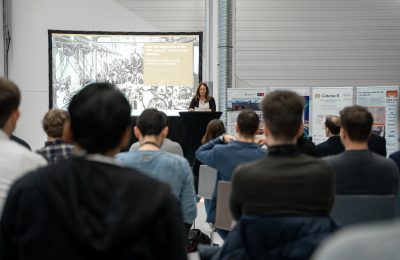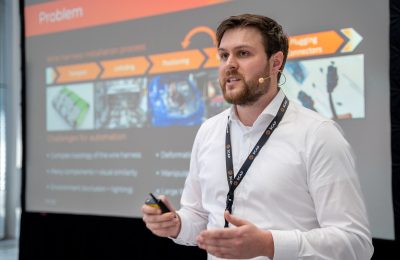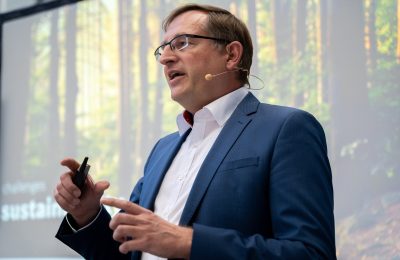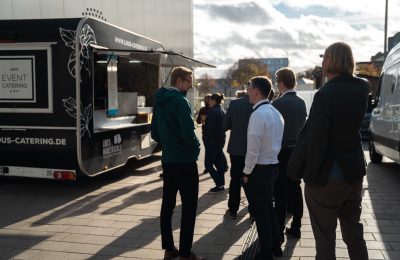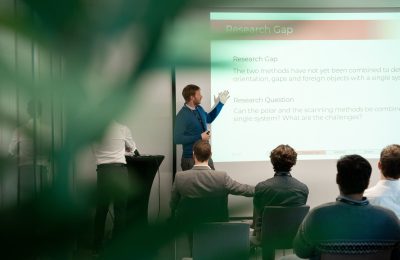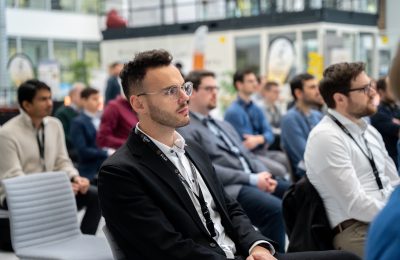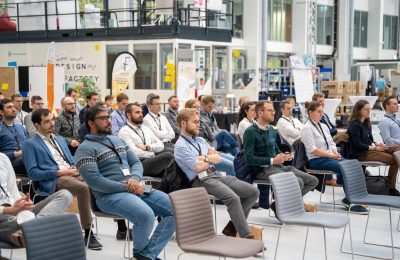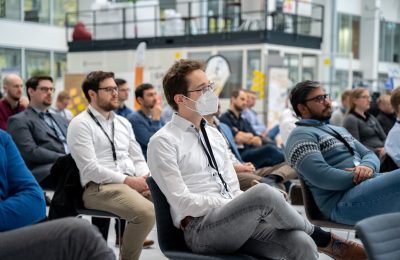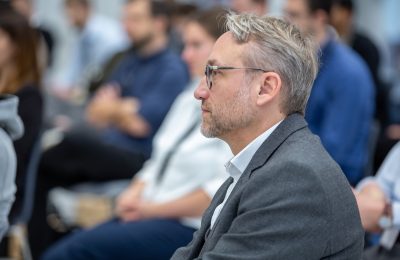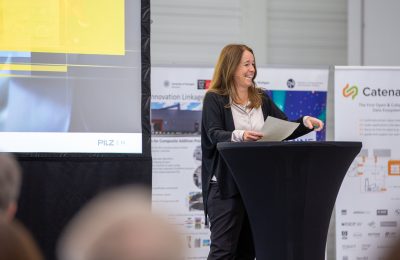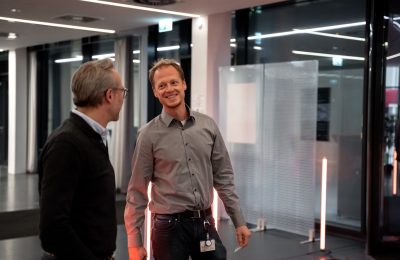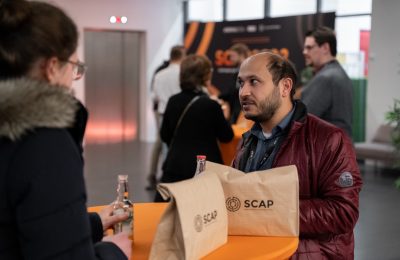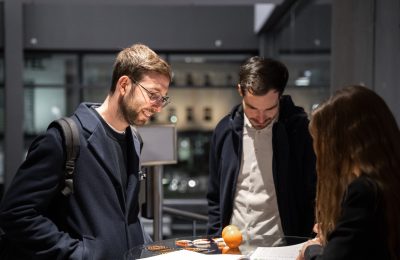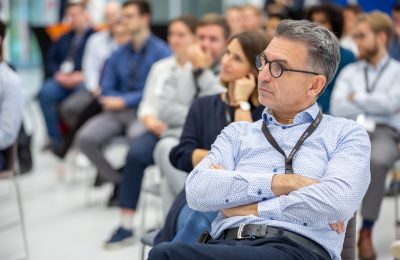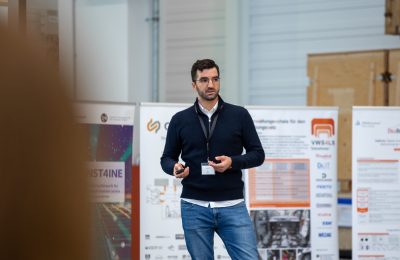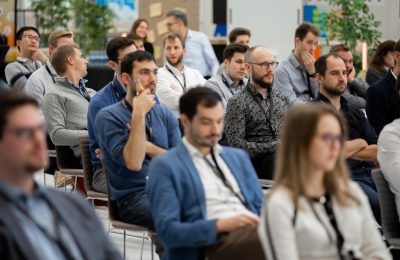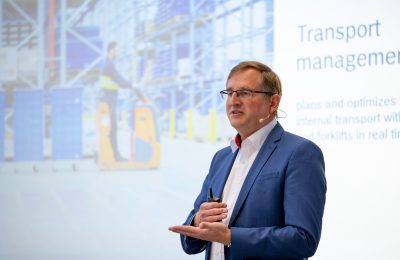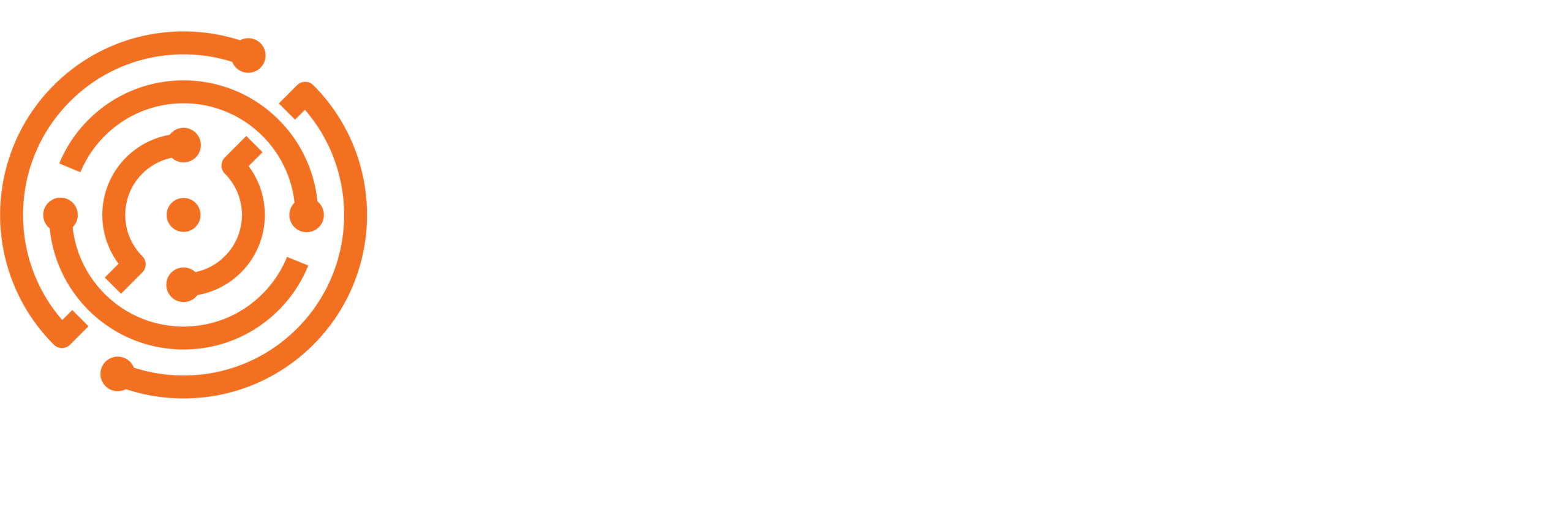Program
Timetable
Details are linked in the program below.
Session Program
approx. 15 min per slot
“Session 1.1 – Applying General Modelling and Simulation Techniques in Design”
Jonas Braiger
University of Stuttgart – Institute of Aircraft Design
Design Automation of Fibre Composite Parts via Graph-Based Design Languages
Philipp Bähr
Fraunhofer IWM
Validation of the CONSTRAINED_SPR3 Joint Formulation or Isogeometric Shell Models
Maximilian Schilling
University of Stuttgart – Institute for Structural Mechanics
Investigating the Potential of Higher-Order 3D-Shell Finite Elements in Stress Analysis of Laminated Structures
Muhammad Saeed
University of Stuttgart, Swinburne University of Technology and ARENA2036
Convergence Studies to Compare the Induced Forming Defects in FE-Based Simulations, Point Clouds, and Actual Formed Parts
Theresa Uhlemayr
Zentrum für Sonnenenergie- und Wasserstoff-Forschung Baden-Württemberg (ZSW)
Modeling the aging behavior of the catalyst layer in PEM fuel cells
Benjamin Schaufelberger
Fraunhofer-Institut für Kurzzeitdynamik, Ernst-Mach-Institut (EMI)
Development and Validation of a Finite Element Model of a Prismatic Cell under Crash Loading
“Session 1.2 – Sustainable and sufficient control engineering”
Marc Fischer
Universität Stuttgart – Institut für Steuerungstechnik der Werkzeugmaschinen und Fertigungseinrichtungen
EtherCAT Tunneling Through Time-Sensitive Networks: An Experimental Evaluation
Darius Deubert
Bosch Rexroth AG
Real-Time Online Simulation at Field Level in Industrial Automation
Stefan Klare
Hochschule Kempten, Institut für Produktion und Informatik
Towards Automotive Manufacturing Efficiency: Enhanced Virtual Commissioning Simulation for Dynamic Sheet Metal Handling Optimization
Lars Klingel
Universität Stuttgart – Institut für Steuerungstechnik der Werkzeugmaschinen und Fertigungseinrichtungen
Online Real-Time Simulation for Collision Avoidance in Robotic Wire Arc Additive Manufacturing
Nicolas Unger
Deutsches Zentrum für Luft- und Raumfahrt e.V. (DLR) Institut für Fahrzeugkonzepte
Novel Slicing Algorithm for Hybrid Manufacturing on Non-Planar Surfaces with Robotic SEAM
Zubin Trivedi
University of Stuttgart – Institute for Modelling and Simulation of Biomechanical Systems
Quantifying the epistemic uncertainties in a Type V CFRP pressure vessel using a fuzzy-approach
“Session 2.1 – Synthesizing design and technology in industry 4.0”
Jonas Knüpper
University of Applied Sciences Kempten
Measuring Resilience: A New Perspective on Assessing Production Facilities Through an OEE based Resilience Metric
Jan Alexander Zak
Mercedes-Benz AG
A Baseline Model for Nugget Diameter Prediction Based on Process Parameters for Aluminum Resistance Spot Welding
Jose Moises Araya-Martinez
Mercedes-Benz AG
A Data-Centric Evaluation of Leading Multi-Class Object Detection Algorithms Using Synthetic Industrial Data
Jonathan Bartels
Volkswagen AG, RPTU Kaiserslautern-Landau
Enhancing Robustness in Cyber-Physical Matrix Production System through Dependability-Integrated Holonic Multi Agent Systems
Makki Ben Salem
Hochschule Landshut
Qualitative Comparison of Handling Tools for Instructed IIoT Data
“Session 2.2 – Tractus-X Workshop”
Tractus X Workshop with interactive Live Demonstations
“Session 3.1 – Innovative Technologies and Collaborative Tools in Designing Digital Products”
Samed Ajdinovic
Universität Stuttgart – Institut für Steuerungstechnik der Werkzeugmaschinen und Fertigungseinrichtungen
Dynamic Process Reconfiguration through Digital Product Passports: A Framework for Adaptive Control
Till Schulz
Fraunhofer-Institut für Kurzzeitdynamik, Ernst-Mach-Institut, EMI
Leveraging Knowledge Graphs to Fill Data Gaps for Life Cycle Assessment during Product Development
David Dietrich
Universität Stuttgart – Institut für Steuerungstechnik der Werkzeugmaschinen und Fertigungseinrichtungen
Software-defined Value Networks: Industrial Requirements and Research Gap
Matthias Weiß
Universität Stuttgart, IAS
An Approach for a Human-Assisted Data Loop in Connected Manufacturing Systems
Troy McMahon
Aalborg University
A Two-Level Architecture for Mobile Grasping
“3.2 Digitain Workshop”
Digital Methods, Models and Sustainability
“Session 4.1 – Artificial Intelligence in Automotive (IEEE)”
Judy Brady
IEEE Manager EMEA-LA
- IEEE Welcome
- Introduction of Speakers
- IEEE’s Partnership with SCAP & ARENA2036
Cecilia Carbonelli
Infineon Sr. Principal, Systems & Algorithm Architect
- Navigating AI regulations and the EU AI Act
- EU regulations Impacting AI in the Semiconductor Industry
- Trustworthy AI: From Regulations to Technical Benchmark
- The Role of Standardization
Mario Tokarz
Founder of RightMinded AI
- Building trust in AI through a Value-based Approach
- Addressing legal and social concerns across the AI product lifecycle
- Methods, tools and best practices for trustworthy AI
Franz Fischer
Standards & More
- IEEE – Trusted source for Automotive and Artificial Intelligence Technology
- IEEE Journals and Conferences
- IEEE eBooks and eLearning
- IEEE Xplore – Artficial Intelligence in Automotiv
“Session 4.2 (A) – Digitain Workshop 2 / Digital Certification”
“Session 4.2 (B) – Autonomous Solutions in Automotive”
Zack Walker
Stuttgart Media University
Exploring Interactions in Autonomous Vehicles: A Comprehensive Evaluation of Various Interaction Methods for 2D and 3D Content
Zack Walker
Stuttgart Media University
Enhancing an Autonomous Vehicle Simulation through Holoride Technology Integration to Reduce Motion Sickness and Increase Immersion: A Proof of Concept and Empirical Evaluation
Simon Komesker
Volkswagen PKW; RPTU; DFKI Kaiserslautern
Improving Automated Manufacturing Processes by Applying Agent-Based Planning and Control
“Session 5.1 – Artificial Intelligence in Automotive”
Andreas Seitz
Balluff GmbH
Comparison of Active Learning and Self-Training as Adaptation Strategies for Robust Classification in a Dynamic Production Environment
Michael Jarwitz
University of Stuttgart – IFSW
Prediction of process constraints using a physics-informed hybrid model with additional output constraints at the example of the threshold of deep-penetration laser welding
Tim Staudenrausch
University of Applied Sciences Kempten
Cycle Time Measurement Using AI-Based Object Detection and Tracking in Industrial Processes
Manuel Zürn
Universität Stuttgart – Institut für Steuerungstechnik der Werkzeugmaschinen und Fertigungseinrichtungen
Robotic Wiring Harness Bin Picking Solution Using a Deep-Learning-Based Spline Prediction and Multi-Stereo Camera Setup
Jan Alexander Zak
Mercedes-Benz AG
Comparative Analysis of Machine Learning Models in Production Environments Through Residual Distributions
Muhammad Saeed
University of Stuttgart and Swinburne University of Technology
Reinforcement Learning to Improve Finite Element Simulations for Shaft and Hub Connections
“Session 5.2 – Frameworks and approaches for a circular economy”
Ruiyang Deng
INATECH, University of Freiburg, Freiburg, Germany
The Application of LCA Data Uncertainty Analysis in the Sustainable Development Process
Johannes Scholz
Karlsruhe Institute of Technology wbk Institute of Production Science
Modeling and Optimization of Sustainability Criteria Along the Product Engineering Process of Handling Systems
Matthias Duve
University of Applied Sciences Kempten, Institute for Production and Informatics
The Role of Metal Additive Manufacturing in a Circular Economy
Muhammad Ali
University of Nürtingen-Geislingen (HfWU)
Sustainable and Affordable Strategies to Reduce Traffic Emissions in Urban Areas
Santwana Pati
Bundeswehr University Munich
Overview of the Challenges in High-Pressure Type V Hydrogen Tanks for Automotive Applications
Lars Kälber
Institut für Statik und Dynamik der Luft- und Raumfahrtkonstruktionen
Comparison of Symbolic Regression Methods for Recovering the von Mises Stress Law
